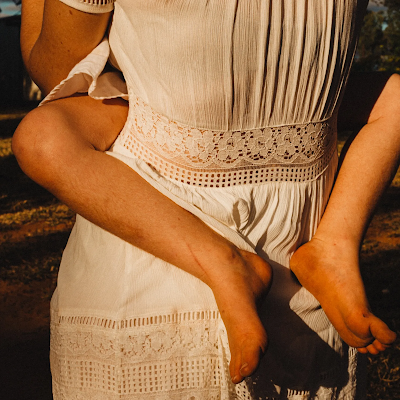New Yorker Fiction Review #302: "Do You Love Me" by Hila Blum
Review of the short story from the June 5, 2023 issue of The New Yorker...
The opening lines and paragraphs of a short story are all-important. As a reader, you are diving into a new fictional world which you will only inhabit for 30-45 minutes, at most. Thus, the author does not have a long time to hook you. Furthermore, unless -- like me -- you read these stories for the purposes of reviewing them and therefore force yourself to finish them, you could very easily be confused, put-off, or (more commonly) bored by the opening paragraphs and put the story down forever.
The first line of "Do You Love Me," by Israeli writer Hila Blum, is intriguing enough that I think most readers would decide to push through and at least see what the story is all about. It is one of those sentences laden with so much potential meaning and personal history, you almost cannot resist reading further:
"The first time I saw my granddaughters, I was standing across the street, didn't dare go any closer."
The first question in mind is, obviously...why is this the first time she's seeing her granddaughters? Furthermore, why does she not dare go any closer? Hila Blum addresses these questions in the short story "Do You Love Me," even if she does not explicitly answer them.
This time-jumping story starts in the present day, as an Israeli woman named Yoella finds herself (as in the the passage above) in the Netherlands attempting to track down her daughter Leah and Leah's two daughters, her grandchildren. The rest of the story is concerned with Yoella's reminiscences of Leah's childhood and family life with Meir, Leah's father and Yoella's partner, with an eye (it seems) to what might have caused Leah's relationship to her parents to go off the rails to a point where, as an adult, she now has a family in another continent and has cut off contact. There does not explicitly seem to be a direct incident or trauma that caused this separation, making it all the more mysterious and making the story all the more interesting.
In fact, if anything that is remarkable about this short story it is the way the author gives us an extreme close-up view of family life and family dysfunction, while not feeling the need to hit us over the head with anything, or overburden us with a clumsy A+B=C style plot. Instead, reading this story is like reading tea leaves, and in that way is very similar to what we do with our own lives as we look for meaning in them. Who among us has not looked wondered, "Why am I the way I am?" or "Why is my relationship to (whoever) the way it is?" and looked back into the now murky -- if not completely opaque -- waters of their own past for answers? We have all done this, and probably do it every day to some degree.
What we see in this story is that, perhaps, Yoella's own dysfunctional upbringing -- of which we get only the most glancing details -- caused her to be an excessively doting mother. And yet, perhaps also a cruel and distant one, evidenced by the fact that she and Meir called their daughter Leah "Foghorn" when she was a child, and saying that she had dozens of other names for Leah as well. To me this sounds like spirited ribbing gone a little too far, and at too young an age.
One part of the story that sticks out is an incident in which the small family -- Yoella, Meir, and Leah -- are at a campground on vacation, playing cards, and Leah gets caught cheating at the game. Again, I'm not precisely sure how something like this relates to Leah and Yoella becoming estranged in the long run, but it must in some way.
Yoella, it seems, has some intimacy issues. Her husband, in fact, was scared that she would not be able to love their child when it was born.
"I thought after you gave birth I would have to have you committed."
I listened breathlessly. The months of pregnancy with Leah were a horror ripening from within--the thing that was growing inside me, forming from my flesh, was also entirely sealed off and sujugating.
"I saw how you were holding on," Meir continued. "I knew you were holding on by your fingertips. I remember thinking, She'll have the baby and then fall to pieces. She'll never be able to take care of anyone, ever. I thought that after the birth I'd have to raise the baby on my own and also take care of you."
Is this just a type of parental cold feet? Or was this driven by some deep type of coldness inside Yoella that would eventually make her unable to love the adult Leah?
In this case, I am perfectly okay with a short story being inscrutable. The rich reality of the details and the accurate depiction of the joy and frustrations of family life -- and the way that we try and make sense of something that ultimately makes no sense (our pasts, and our lives) -- made this story satisfying enough without some big reveal or plot twist in it. A prime example of a short story that is so engaging on the journey of reading it that you don't care where it's going and even that it doesn't necessarily go anywhere.


Comments